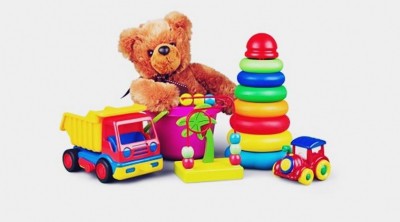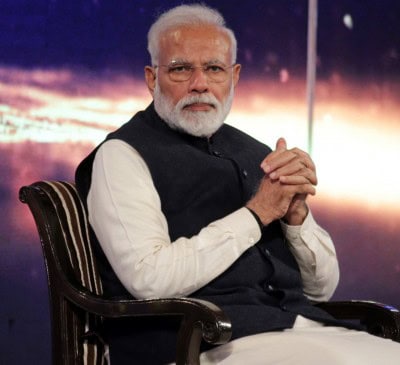 By Mohammad Suaib
By Mohammad Suaib
New Delhi, Sep 1 : Prime Minister Narendra Modi’s recent appeal for going vocal about local toys has evoked mixed feelings in Sadar Bazaar Delhi’s iconic wholesale toy market.
Soon after India announced stricter quality compliance requirements on imported toys, Prime Minister Modi met senior officials on August 23 to discuss ways to boost the manufacturing imprint of Indian toys, suggesting that the youth be engaged in coming up with innovative designs. But a number of stakeholders in Delhi’s popular toy market predominantly dominated by cheap Chinese toys, are sceptical about these ambitious plans.
Sadar Bazaar, on the western side of the Khari Baoli road that leads to Chandni Chowk in Old Delhi, is one of the biggest toy markets in the Capital. But Chinese toys have come to dominate the retail landscape. According to Rajendra Sharma, General Secretary of the Federation of Sadar Bazaar Traders Association, an umbrella body of 80 associations, 70% of the toys sold in Sadar Bazaar before the lockdown were made in China. Despite border tensions, Chinese products still hold a chunk of the market.
Sharma insists there is a big gap between dreams and reality. “The main problem for Indian toy makers is difficulties in establishing a factory. The officials on the ground create so many problems that no one wishes to start a business. First, the Prime Minister should create an environment conducive for business. The government needs to work in mission mode to make it business-friendly. Thereafter policies need to be amended for the toy industry,” Sharma told IANS.
The toy industry in the country has a long way to go before it can join the “Aatmanirbhar Bharat” bandwagon, says Sharma. He gives the example of teddy bears to make his point. “The raw material for ‘Made in India’ teddy bears comes from China. Now, decide for yourself, whether the product with Chinese material will be a ‘Made in India’ or ‘Made in China’. Moreover, Chinese teddy bears are cheap and attractive which easily capture children’s imagination,” he reasons.
Those privy to the dynamics of Delhi’s toy market insist Chinese products are far ahead in terms of features. Toys based on pop culture characters such as Iron Man, Batman and Ben 10 are highly sought-after. China produces these on a large scale. The challenge for Indian domestic toy manufacturing will be to live up to these standards, all the more so when the Prime Minister himself stressed on toys “aligned with Indian culture and ethos”.
Many wholesalers, on condition of anonymity, told IANS there is complete lack of coordination between the AAP-ruled Delhi government and BJP-ruled MCD, which has led to deterioraion in law and order in the market. “People’s pockets are routinely picked and women often feel unsafe,” said one of the wholesalers. Unless these issues are addressed, Indian wholesalers can’t hope to make a dent in the share of Chinese toy makers.
Sharma says the lockdown and Indo-China border tussle has further aggravated the situation. “Before the lockdown, around 200 containers used to come every month. But ever since the border skirmish, it has come down to 20,” he says.
Pushpa Pandey from Nangloi, a reseller, however, says the Aatmanirbhar toy market is not necessarily a pipe-dream. She told IANS, “My husband goes to the bylanes to sell Indian toys. We buy toys worth Rs 1000 which we resell in 10 to 15 days.” Indian toys like jhunjhuna, peepni and toy cars have better chances of sale during festivals and melas. But for that, normalising the Covid situation is a prerequisite.”
However, her optimism goes against the popular sentiment. Sharma, who knows the toy market of Delhi like the back of his hand, sums it up, “PM Narendra Modi ki soch achhi hai. But implementing it on the ground is really difficult.”
Disclaimer: This story is auto-generated from IANS service.

